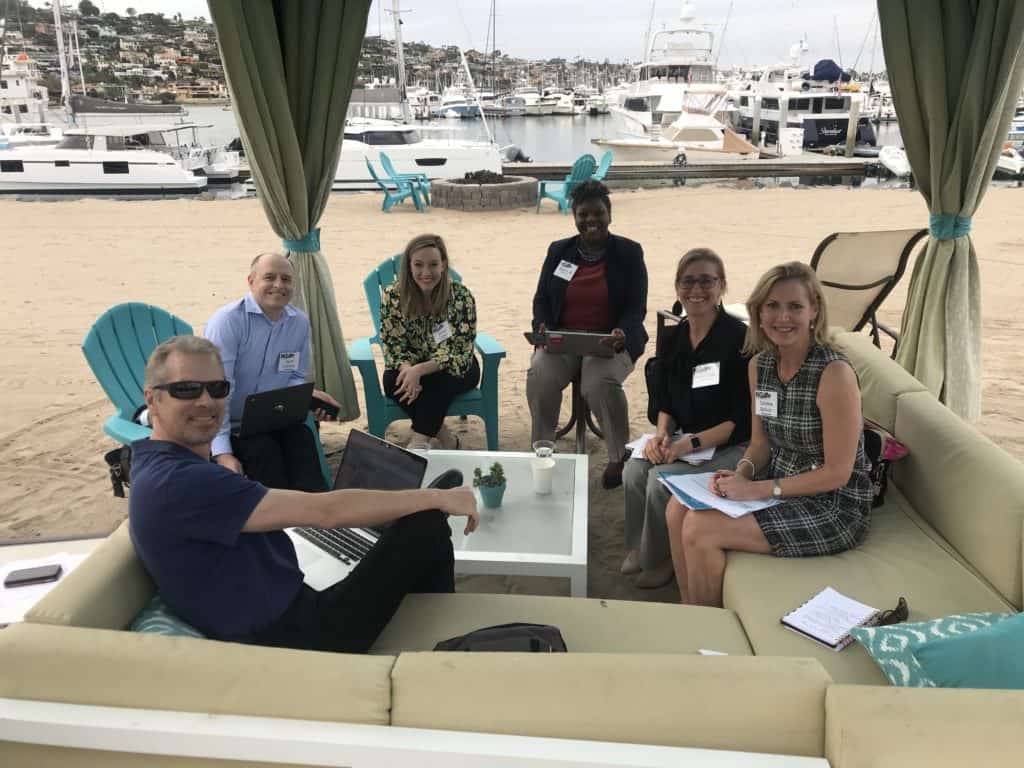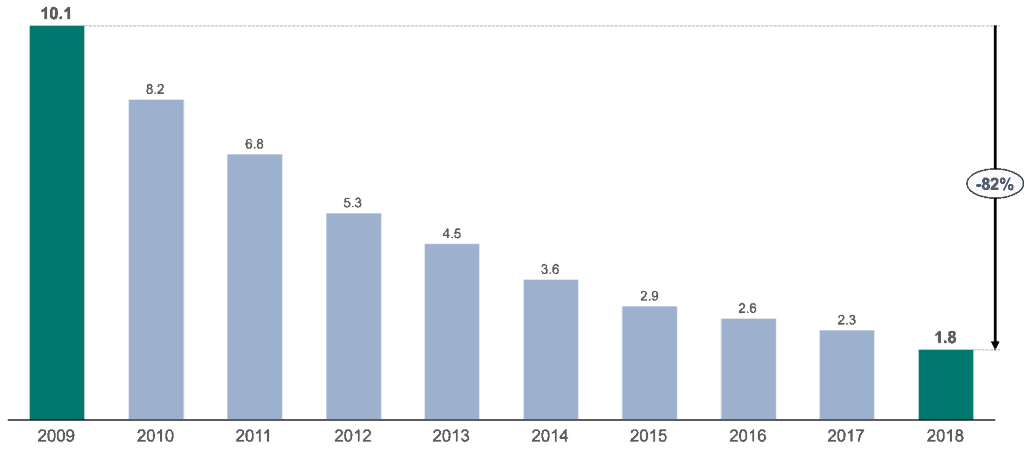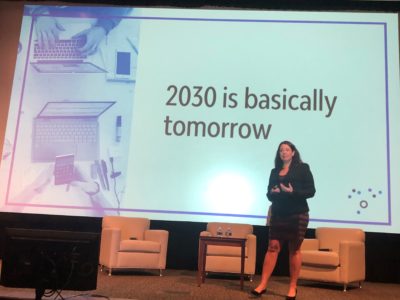

“I always strive to be the best and give my all to whatever I do, even when I don’t feel I have much left to give.”
How thrilled would an employer be if every one of their existing employees and future hires felt this way about their own work? Jesse Watts, ex-army and current community college student and president of the Student Government Association at Fayetteville Technical Community College gained this work ethic while engaged in work-based learning in the Army.
Yes, time in the military is a form of work-based learning. Many of our young veterans are transitioning from various branches of the military to civilian life, and though many service women and men have attained various credentials, it is the veterans in the sand and mud, and in the cold and rain, who have experiences that are invaluable.


The military has its on-the-job experiences, but there are also a plethora of work-based learning opportunities currently available to all citizens in the state. These include internships, apprenticeships, clinical rotations, fellowships, practicums, and co-operative learning.
The many forms of work-based learning can be confusing and difficult for an individual to explore. That’s why a team of representatives from K-12 education, higher education, workforce development, and government agencies is proposing the formation of NC Career Launch.
In the fall of 2017, with support from the National Governor’s Association, the state put together a core team of agency stakeholders to participate in a policy academy on work-based learning. The team was led by the North Carolina Business Committee for Education (NC BCE) and the North Carolina Governor’s office, and joined by individuals from the North Carolina Community College System, the North Carolina Department of Public Instruction, and the North Carolina Department of Commerce.
The core team set out to change the cultural norm surrounding work-based learning in the state. Students participating in work-based learning gain important employability skills and competencies that are typically difficult to develop through classroom instruction. Unfortunately, participating in work-based learning experiences is not a part of the social consciousness of most people as they navigate their education-to-career pathways. If work-based learning could be as natural and accessible as taking a history or English course, then more students and adults in North Carolina would participate, resulting in a more skilled workforce and improving the economic mobility of the citizens in the state.
The core team’s activities eventually led to the creation of a website for information on work-based learning, a portal for educators to find work-based learning resources, and the December 2018 Governor’s Experience More Summit on work-based learning. The success of these efforts convinced the National Governor’s Association to invite the state to serve as a mentor to other states on work-based learning and to expand upon the development of NC Career Launch. NC Career Launch will ensure that every North Carolinian, ages 16-24, will have access to quality work-based learning that prepares them for in-demand careers and provides them with a high-quality credential or college credit.


As the work of the core team was progressing in 2017 and 2018, state leaders continued to hear from business and industry that the challenges of finding talent were becoming more severe. Employers’ struggles were due to a variety of factors, but since 2009, the number of qualified applicants in the state has decreased by 82% (Figure 1.).
The decrease in the pool of qualified applicants along with the projection of annual job openings (550,000 expected between 2017 and 2026 according to the NC Business Committee for Education) convinced the state’s leaders in education, business, and government of the need for an education attainment goal. The target, referred to as the myFutureNC goal, aims for North Carolina to have 2 million citizens with a high-quality degree or credential by 2030. Included in the goal are credentials that result from the various forms of work-based learning.


NC Career Launch programs are designed to increase statewide postsecondary credential attainment and connect students to high-demand jobs by validating programs that include the following:
- Focus on ages 16-24
- Paid and supervised work at employer site
- In-demand careers
- Aligned classroom instruction
- Embedded employability skills
- Results in a credential of value or college credit
- Provides a pathway to a living wage
- Culminates with a Career Ready NC credential
Career Ready NC credentials are those that will be identified by the state through other efforts (the Credentials of Value Institute and the Attainment Academy initiatives). These credentials will include competencies valued by industry and result in wage progression or a living wage.
To further scale NC Career Launch programming across the state, the core team is exploring the creation of regional networks. The networks will help determine the work-based learning strategy to fit unique needs of the local region.
The regional network will act as implementation partner for new pilots and existing NC Career Launch programs. It will also convene stakeholders, such as business, philanthropy, education, community organizations, and government, to grow and improve the programs. The regional networks will be supported by the state with technical assistance on fundraising, compliance, and programmatic development.
The core team realizes that there is much to be done in the state to change the cultural norm surrounding work-based learning. However, the team knows that NC Career Launch will be a success when it helps to develop more individuals across the state like Jesse Watts.
Employers will be smiling when they are able to fill their jobs with individuals who sound like Jesse: “I took assignments during my work experience that others didn’t want or couldn’t do. Now, I work ahead on my studies and get them done instead of procrastinating until the last minute. The time management skills I obtained in the military have become my best friend with my assignments, school events, local and state Student Government Association, and in my social life.”




